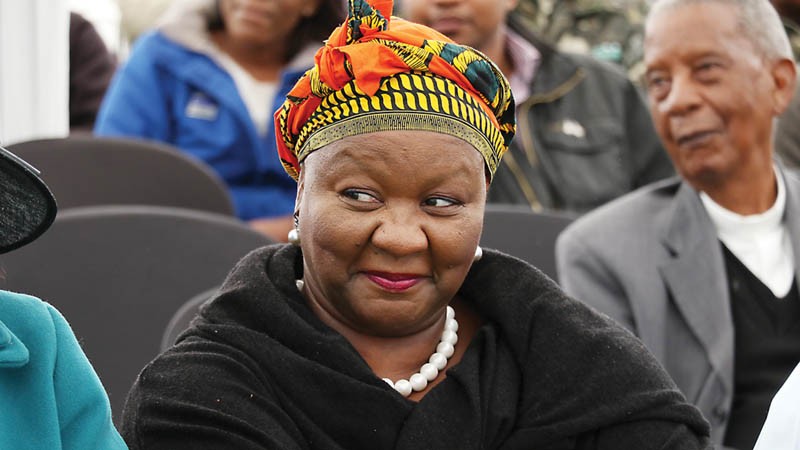Makgato aware of drug shortages
Pini Bothoko | Wednesday August 2, 2017 16:48


This came to light once again yesterday at Parliament when the Minister of Health and Wellness Dorcus Makgato was answering a question from Member of Parliament for Mahalapye West Joseph Molefe, who wanted to know if she was aware of the challenges of availability of drugs at Mahalapye District Hospital.
Molefe wanted to know if the minister was aware and the measures in place to address non-availability of vital and essential drugs. He also wanted to know what is being done to alleviate patients’ long waiting time at the pharmacy.
When answering, Makgato conceded to be aware of shortages of some drugs such as antibiotics and consumables in health facilities due to different reasons as elaborated in their recent media release that was issued on July 21, 2017.
She said to address non-availability of vital and essential medicines, the ministry has given health facilities, including Mahalapye DHMT, funds to source such items from the private market through micro procurement.
Makgato stated that opening the pharmacy during working hours including lunchtime and working extended hours to ensure all patients get their medicines has been done to alleviate long patient waiting time at the pharmacy.
She added that elderly, pregnant women and students do not join the main queues at the pharmacy.
For years’ shortage of drugs, medical staff as well as unavailability of staff accommodation has been the ministry’s greatest concern.
In the past it was reported that the patient-to-nurse ratio is as high as 30:1 instead of the internationally accepted standard of 10:1 something that might result in unnecessary deaths.
In the media release that was issued on July 21, 2017 on shortage of medicines and commodities in health facilities, the ministry’s permanent secretary, Shenaaz EL-Halabi conceded that they have experienced a shortage of some medicines and non-drug commodities in their facilities including some specimen bottles.
“This was due to supply-chain management issues. Supply-chain management issues include late delivery of commodities by suppliers, delivery of incomplete supplies from suppliers and lack of supplies from manufacturers.”
The media release added: “Specimen bottles, yellow fever vaccine and cancer drugs i.e. oxaliplatin and other commodities were however delivered and distributed to facilities on the 14th July 2017. The Ministry is still having challenges with some antibiotics and theatre swabs due to supplier issues. The public is assured that the ministry is working to resolve these issues”.
It further stated that there are however some internal challenges affecting availability of medicines and commodities such as non-awarding of tenders as a result of suppliers not meeting required specifications. In order to address these challenges, the Ministry has embarked on some initiatives including, giving health facilities funds for emergency procurement of unavailable commodities and prescribing alternative medicines where a specific product is not available.
It further elaborated that patients could be given an equally potent product as an alternative. For instance, a patient will be given brufen as an alternative to Indocid for pain.
The media release revealed that the ministry has embarked in improving compliance to health standards. The facilities are currently undergoing accreditation process.
“Drug availability level is one standard that is determined in theaAccreditation process. Procurement threshold for Central Medical Stores (CMS) adjudication committee has been increased to facilitate procurement at CMS level. Supplier consultative meetings are held annually to improve on supply-chain management and we are also now enforcing de-listing of suppliers who are routinely defaulting,” reads the media release.
